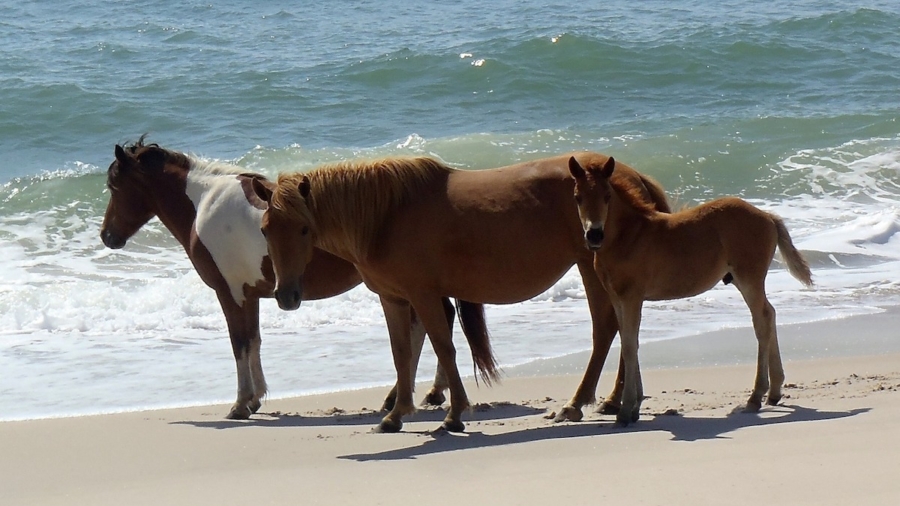As mandatory evacuations ordered along the Southeast Coast ahead of the approaching Hurricane Dorian, a herd of majestic wild horses will likely continue to roam the beaches of North Carolina.
Dorian’s intensity has decreased since its peak over the weekend and swept past Florida at a relatively safe distance. But the storm still poses a serious threat to North Carolina’s Outer Banks islands, the home to some 100 mustangs.
“The wild horses are better equipped to handle a hurricane than most of us humans living on the Outer Banks,” the Corolla Wild Horse Fund, explained on its Facebook page.

They are a non-profit organization that helps protect and preserve North Carolina’s wild Colonial Spanish mustangs.
“They’ll likely ride out winds and rain as their ancestors did before them—in huddles, butts to the wind,” Meg Puckett, herd manager for the Fund, explained to Outer Banks News.
These proud stallions and mares, according to the conservation group, are descendants of horses introduced to the Americas by the Spaniards in the early 16th century. Spanish colonists failed to maintain their colony in North Carolina and retreated to their stronger holdings in Florida. Escapee horses from colonial stock managed to survive on their own and reproduce for centuries without significant influence from humans.
“They go to high ground under the sturdy live oak trees to ride the storm out,” the Fund said. “Remember, they’ve been doing this for 500 years!”
Colonial Spanish mustangs have “an institutional knowledge” of where it’s high, dry and safe, according to Puckett. “It’s one of the few times we see a lot of the different harems come together.”
There are several harems of horses within the herd. Each harem consists of a dominant stallion and a group of mares.
Puckett told the local news outlet that his rescue farm has stocked up extra hay and grain, and filled troughs with extra water. A herd manager will stay on the farm with the horses as Hurricane Dorian hits the state.

The Outer Banks mustangs have ridden out many storms over the years and, as far as Puckett remembers, they’ve made it through hurricanes and nor’easters unharmed.
Despite being popularly called “wild,” North Carolina’s mustangs are technically feral horses. Their ancestors were domesticated horses brought to the New World by the conquistadors. The only horse that is still entirely wild, having never been domesticated by humans is Przewalski’s horse, an endangered species native to the steppes of Mongolia.


